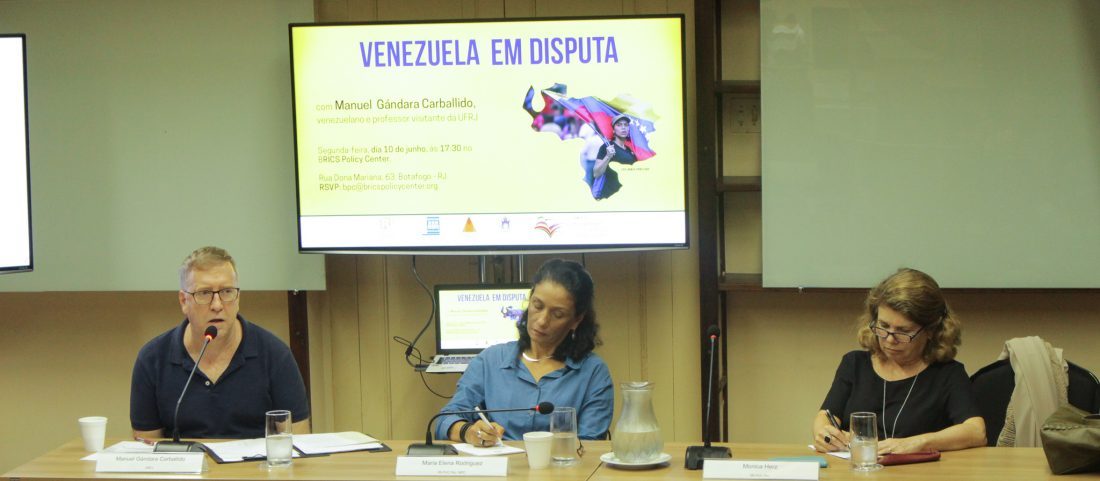
Organized by BPC, the lecture taught by Professor Manuel Gándara Carballido discusses the political situation in Venezuela and its narratives.
The complex situation in which Venezuela finds itself was the theme of the debate organized by the BRICS Policy Center on June 10, 2019, given by Manuel Gándara Carballido, visiting professor at UFRJ. At the event, “Venezuela em Disputa”, the professor offered a brief historical overview of the traditional bipartisan and rentier political model, of the rise of “Chavismo” and the subsequent government transition to the current president Nicolás Maduro.
Followed by that introduction, Carballido began a more specific debate on the contours of the crisis that Venezuela has been facing for more than four years and the possible perspectives for the future.
With the election of Hugo Chávez in 1998, representing the political group “Movemento V Republica” (MVR), the country’s situation changes significantly. Chavez comes to power with the promise to break with the old policy, to change the economic model by betting on industrial diversification, but especially to improve living conditions by attacking high levels of poverty and inequality.
According to Carballido, the election of Chávez begun a political process that gave ample representativeness to the population and recognized the citizens as political subjects. This greatly implies, according to the professor, on the broad support for the Chávez government and in the subsequent election of Nicolas Maduro, which promised to maintain and deepen the policies and practices that had been used by the government until then.
In addition, the teacher discussed, later, the current crisis in Venezuela and what would be the possible alternatives for overcoming this process.
The crisis has been worsening gradually in recent years and today it has dramatically affected every aspect of the nation’s life: public service degradation, oil industry collapse, hyperinflation, the rapid rise of poverty, the migration of thousands of people, high violence, and other factors. According to him, for now, there is no clear solution, since there is no expectation of mediation and dialogue between the two sectors currently facing the country, represented in the names of Nicolás Maduro and Juan Guaidó. In any case, the exit must be peaceful, constitutional, and must restore the sovereignty of the Venezuelan people.


